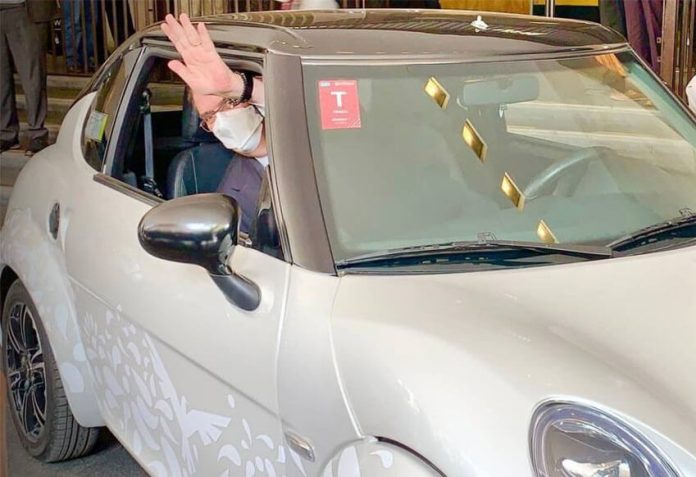Mexico’s first electric vehicle (EV) was back in the spotlight this week when Foreign Affairs Minister Marcelo Ebrard tweeted about it after launching the Mexico-United States Electric Vehicle Working Group.
“We started the Mexico-United States … [working group] with the support of the University of California and the automotive industry. I got to try the Zacua, a Mexican electric vehicle. Extremely good!!” gushed the foreign minister in a Twitter post on Tuesday.
Production of two different Zacua models began in 2018 in a Puebla plant staffed entirely by women. The Zacua MX 2 is a coupe while the MX 3 is a hatchback. The price of both EVs is just under 600,000 pesos (US $29,200).
Both Zacuas – named after a Mexican bird beloved by Aztec Emperor Moctezuma – are zero-emissions, two-seater vehicles whose design was purchased for use in Mexico from French microcar manufacturer Chatenet. They have a range of approximately 160 kilometers and their top speed is 85 kph.
The lifespan of the battery is 3,000 charges, or approximately eight years if charged from 0% to 100% daily, which takes eight hours.
There are approximately 1,500 EV charging stations in Mexico, of which 70% are public, the news magazine Proceso reported. Half of the stations are in just three federal entities: Mexico City, Nuevo León and Aguascalientes.
The binational EV working group is a high-level initiative developed jointly by the Foreign Ministry (SRE) and the University of California.
“Leading actors from government, industry and academia in both Mexico and the United States are participating in the project. The goal of the initiative is to ensure a coordinated and strategic transition towards electro-mobility,” the SRE said Tuesday in a statement.
“The most important thing that happened at the North American Leaders Summit … is that we revived a vision of North America. Now … we have a shared vision in many areas, and this is one of them,” Ebrard said at a launch event in Mexico City attended virtually by U.S. energy officials.
Despite the declaration of unity, the Mexican government indicated late last year that it would retaliate commercially if the United States Congress passed legislation that increases credits available to U.S. consumers buying U.S.-made EVs.
The Mexican Employers Federation (Coparmex) warned in December that the Build Back Better (BBB) Act – which passed the U.S. House of Representatives but was effectively killed by Democratic Party Senator Joe Manchin’s lack of support for it – posed a threat to the Mexican automotive industry.
With reports from Proceso, El Universal and Diario Presente
